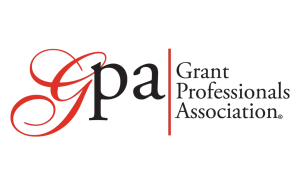Your organization’s systems, expectations, and personalities combine to create a culture that can boost your ability to win grant dollars or can make pursuing grants feel like Sisyphus rolling a rock up a hill in Hades.
“Grants work is never easy and will always have a bit of a Sisyphus feel,” according to Barbara Floersch, grants expert and author of You Have a Hammer: Building Grant Proposals for Social Change. “But there are attitudes and business-as-usual approaches that can ease the way or set you back.”
Organizations with solid data gathering and reporting systems give grants professionals a foot up. Every proposal requires information documenting the quantity, quality, and impact of the organization’s services. When data is gathered, compiled, and analyzed regularly, there’s a rich vein to mine for funding requests.
Conversely, it is hard to craft a convincing request for support if recordkeeping is lax, hard numbers are unavailable, and staff members resist evaluation. Why should a funder support the organization if it can’t document what it is doing and why that work matters?
Organizations that conduct community assessments give grants professionals what they need to target responsive funding opportunities. “Grant requests motivated by community needs are convincing. But dreaming up projects in response to grant opportunities is dollar-chasing plain and simple,” said Floersch. “Asking the grants pro to get a grant, any grant, right now is asking for failure.”
Organizations where leaders follow through on commitments make it easier for the grants professional to line up collaborators and secure matching funds. Trust is a Swiss-army-knife intangible that opens doors with both funders and other community organizations.
The best grant proposals are a result of teamwork. When staff members understand their role in seeking grants and participate without complaint, the final product will be enhanced by the joint effort. But if the grants professional is left alone to conquer an impossible mountain of work, mistakes will be made and both the proposal and the writer will suffer.
Funders want to know that the annual financial audit results are good. They want to trust that board members play a substantive role in supporting and guiding the nonprofit. Many require that written policies and procedures be in place. They need to trust that required reports will be submitted and that questions will be answered honestly. A well-run organization with a culture of teamwork and a dedication to meeting community needs is a grants professional’s springboard for success.
“Organizations with leaders intent on developing a robust, successful grants acquisition program should begin by assessing the organizational culture and aligning it to support the work,” said Floersch.












